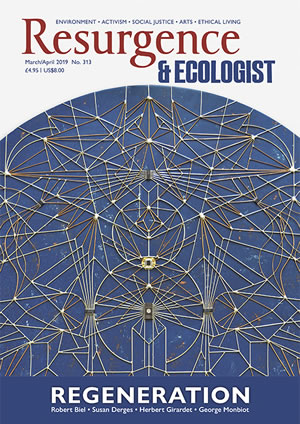Globally, for the first time ever, more than half of the world’s population lives in urban areas. The rapid growth of cities presents serious challenges, such as pressure on freshwater supplies, the living environment and public health. Goal 11 of the 17 UN Sustainable Development Goals is to “make cities and human settlements inclusive, safe, resilient and sustainable”.
As well as the challenges, cities also present opportunities: housing and population density can bring efficiency gains for technological innovation to reduce resource and energy consumption. Cities can move faster than national governments; hence the new mantra: “While nations talk, cities act.”
The London Waste and Recycling Board (LWARB) had this in mind when we signed up to become part of the CircE Project – an EU Interreg-funded collaboration between eight regions and cities looking at ways to overcome barriers to a circular economy.
We welcomed those European partners to our new office in London to show how the city is accelerating its transition to a circular economy. The group visited sites such as Queen Elizabeth Olympic Park, Mercato Metropolitano (a food market building a sustainable food community in Southwark), and Sustainable Bankside. LWARB also hosted an evening in which pioneering London-based small and medium-sized enterprises (SMEs) such as the award-winning Chip[s] Board, Toast Ale and Library of Things presented their circular business models.
I believe that it is cities that will power a global circular economy – an approach that provides a sustainable and profitable alternative to the way our ‘linear’ economy currently works. This belief sits at the heart of everything LWARB does.
In June 2017 we published London’s Circular Economy Route Map, one of the first of its kind. Prioritising action in the built environment, food, textiles, plastics and electronic equipment sectors, the Route Map identifies a £7-billion-per-year opportunity for London in these areas alone. Since then, other cities and countries have followed suit as the advantages of a circular economy become clearer and more pressing.
In London, LWARB is establishing one of the most comprehensive circular economy programmes for a city anywhere in the world. And London is fertile ground: four of the UK’s top ten universities are here, it is a global financial centre, and it has a thriving tech sector, amongst other advantages. The LWARB programme is built upon three main pillars: helping circular businesses to grow through advice and funding; working with corporates to develop circular economy demonstration projects; and working with local authorities to recycle more waste.
LWRB’s Advance London programme provides investment and business support to SMEs that want to grow their circular businesses or transition to a circular business model. We have invested in several circular economy funds, and our business support team, jointly funded by the EU, has so far helped over 100 SMEs and is still only halfway through a three-year programme. We are working with some of the most innovative enterprises in the world, which use recycled material as an input, make their products recyclable, more durable or modular, and sell products as services (leasing) or enable the sharing of excess capacity.
The Circular London programme works with corporates to demonstrate the possibilities of the circular economy through pilot projects and create a network of circular economy practitioners to help deliver the Route Map actions. If we can demonstrate effective and profitable circular business models and the right policy context to help them flourish, we could make a difference not just in London, but globally.
The Resource London programme is London’s waste authority and business waste support programme, a partnership between LWARB and WRAP (Waste and Resources Action Programme). Its objective is primarily to increase London’s recycling rate, helping to deliver the mayor’s aim that London become a zero-waste city and ensuring that by 2030 65% of London’s municipal waste is being recycled. The programme works with London’s waste authorities to improve and harmonise services, but also communicates directly with Londoners through a range of behaviour-change campaigns, in order to minimise waste and make recycling the norm.
A circular economy keeps products and materials circulating within the economy at their highest value for as long as possible, an approach that is more resource-efficient and protects businesses from fluctuating commodity prices. It could provide a more stable operating environment for manufacturers, retailers and consumers – potentially of benefit to London post Brexit as it also creates the possibility of new revenue streams, markets and product lines.
This is LWARB’s vision for London – a circular city that capitalises on these opportunities to become a more resilient, resource-efficient and competitive city of the future. Through our work with stakeholders of every variety, we aim to be the lead facilitator and practitioner of circular economy in London, already home to so many exciting circular businesses across a range of sectors. Through collaboration with businesses, consumers, policymakers and others, we know that our progressive and outward-looking city can sustain and grow one of the most open and dynamic (circular) economies in the world.







